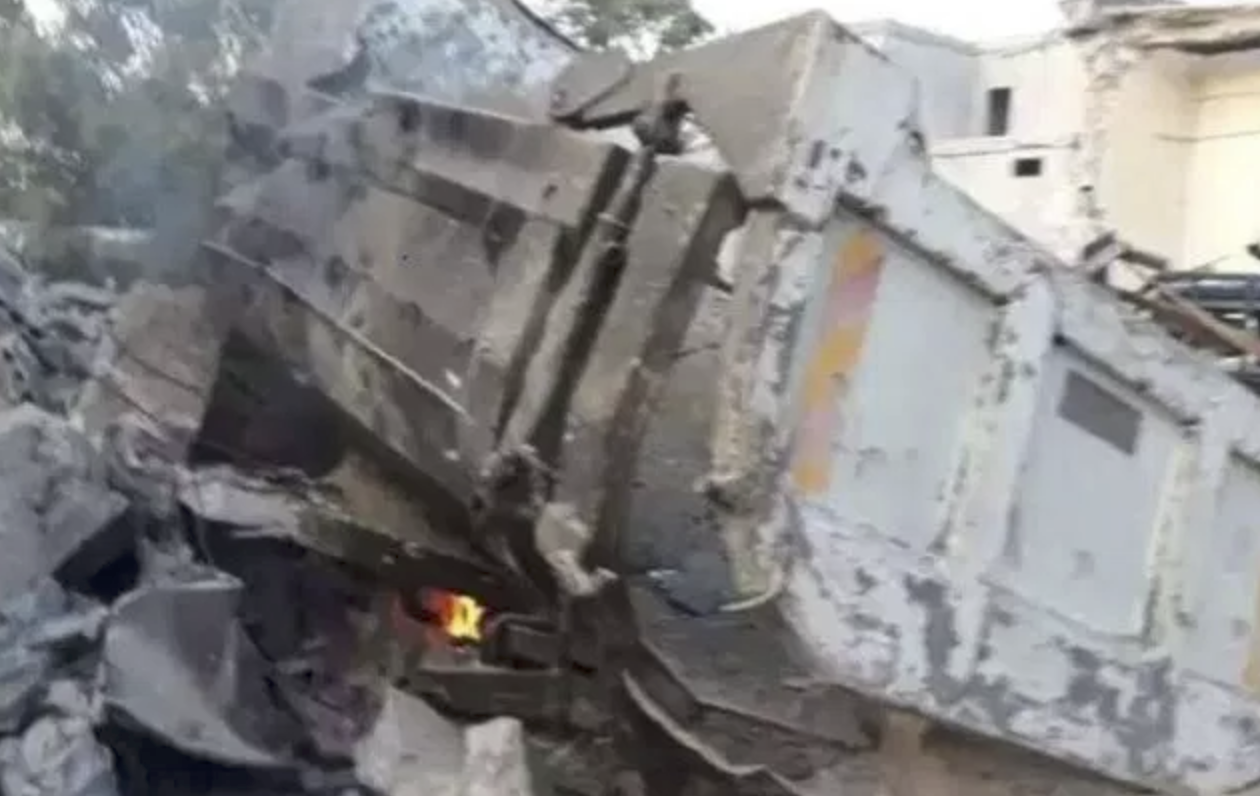![]() The former President of Somalia, former Prime Minister, and Somalian expats have thanked the UAE for its support and humanitarian assistance during the recent terrorist attack in their country that claimed close to 400 lives and injured 500 more.
The former President of Somalia, former Prime Minister, and Somalian expats have thanked the UAE for its support and humanitarian assistance during the recent terrorist attack in their country that claimed close to 400 lives and injured 500 more.
The UAE not only rushed urgent medical supplies and aid after October 14 attack in the Somalian capital Mogadishu, but it also airlifted out 100 of the wounded for immediate medical treatment in the UAE and in Kenya.
The Emirates Red Crescent (ERC) are also providing care for 300 families and orphans of the victims.
“I want to thank the entire government of the UAE, for everything they do for the Somalian community; they have helped a lot of Somalians throughout the years,” Omar Abdirashid Ali Sharmarke, the former Prime Minister of Somalia, and current Senator of the Upper House told Khaleej Times on Monday evening, at the Somalian Embassy.
High-level officials and community members had gathered at the embassy premises on Monday to express their gratitude to the UAE.
This week, Somalian Minister of Health Fawziya Abikar Nor and the UAE Ambassador to Somalia, Mohammed Ahmed Othman, visited the terror attack’s wounded at Sheikh Zayed Hospital, located in Mogadishu.
Former President of Somalia Sharif Shaikh Ahmed also thanked the UAE for its role in international efforts, to combat humanitarian challenges and provide aid. “The UAE is the only country that has continuously been helping us. They didn’t delay for a day, but stood at the forefront of aid,” Ahmed said.
Sharmarke and the son of the former President thanked the UAE President, His Highness Sheikh Khalifa bin Zayed Al Nahyan; His Highness Sheikh Mohamed bin Zayed Al Nahyan, Crown Prince of Abu Dhabi and Deputy Commander of the UAE Armed Forces; His Highness Sheikh Mohammed bin Rashid Al Maktoum, Vice-President and Prime Minister of the UAE and Ruler of Dubai, for their tremendous efforts and assistance.
‘Only the UAE has helped us’
The former PM said the recent truck bombing was one of the deadliest, as a majority of the dead were civilians. The attack also triggered angry demonstrations in the capital. “It is a terrible tragedy, it is a national disaster and it has no place in Islam or any other religion. We need to come together to fight terrorism everywhere,” Sharmake said.
He added that the Somalian government strongly condemn the heinous attack and are thankful for UAE’s quick intervention, which has helped hundreds of the injured and homeless. “We are truly thankful that the UAE is treating 100 of the injured – this is a huge assistance.”
Abdulkadir Sheikhey Al-Hatimi, Somalia’s Ambassador to the UAE, told Khaleej Times that the UAE is the only country that has helped treat the wounded. “This is not the first time the UAE helped Somalia. Since 2009 (start of the Somali civil war), the UAE is the only country that is bringing in the wounded and treating them. No other countries have done this since 2009.”
Somalia has been riven by years of civil strife, after the clan-based armed opposition groups overthrew the Barre government in 1991.
UAE’s ongoing humanitarian initiatives
It is not just the victims affected by terror that are receiving a helping-hand from the UAE government, but also the unprivileged and unnourished in the country.
In 2014, Sheikh Mohammed launched the UAE Water Aid Suqia campaign, which has provided drinking water to more than eight million people around the world, including in Somalia, Uganda, Ghana, Tajikistan, Mauritania, Mali, Senegal and Yemen.
The initiative, which is in cooperation with the Mohammed bin Rashid Al Maktoum Charity and Humanitarian Establishment, is currently helping provide clean water to more than 90,000 people in Somalia, in line with the Year of Giving and in support of the ‘For Your Sake, Somalia,’ campaign.
Moreover, in April this year, the UAE launched a Dh500 million mission of mercy – ‘For Your Sake, Somalia’ – to help save hundreds of thousands of Somalis, starving and displaced by drought conditions.
Launched under the directives of Sheikh Khalifa, the nation-wide campaign helped more than six million people.




 The Somali government has fired two top security officials after twin blasts and a siege left at least 27 people dead on...
The Somali government has fired two top security officials after twin blasts and a siege left at least 27 people dead on...



 Customers dining on chapati wraps and Somali steak sandwiches got a surprise Friday afternoon when the former “Late Night” host David Letterman...
Customers dining on chapati wraps and Somali steak sandwiches got a surprise Friday afternoon when the former “Late Night” host David Letterman...



 Somalia’s president says the hotel assault still underway in the capital is meant to instill fear among people who showed unity in...
Somalia’s president says the hotel assault still underway in the capital is meant to instill fear among people who showed unity in...



